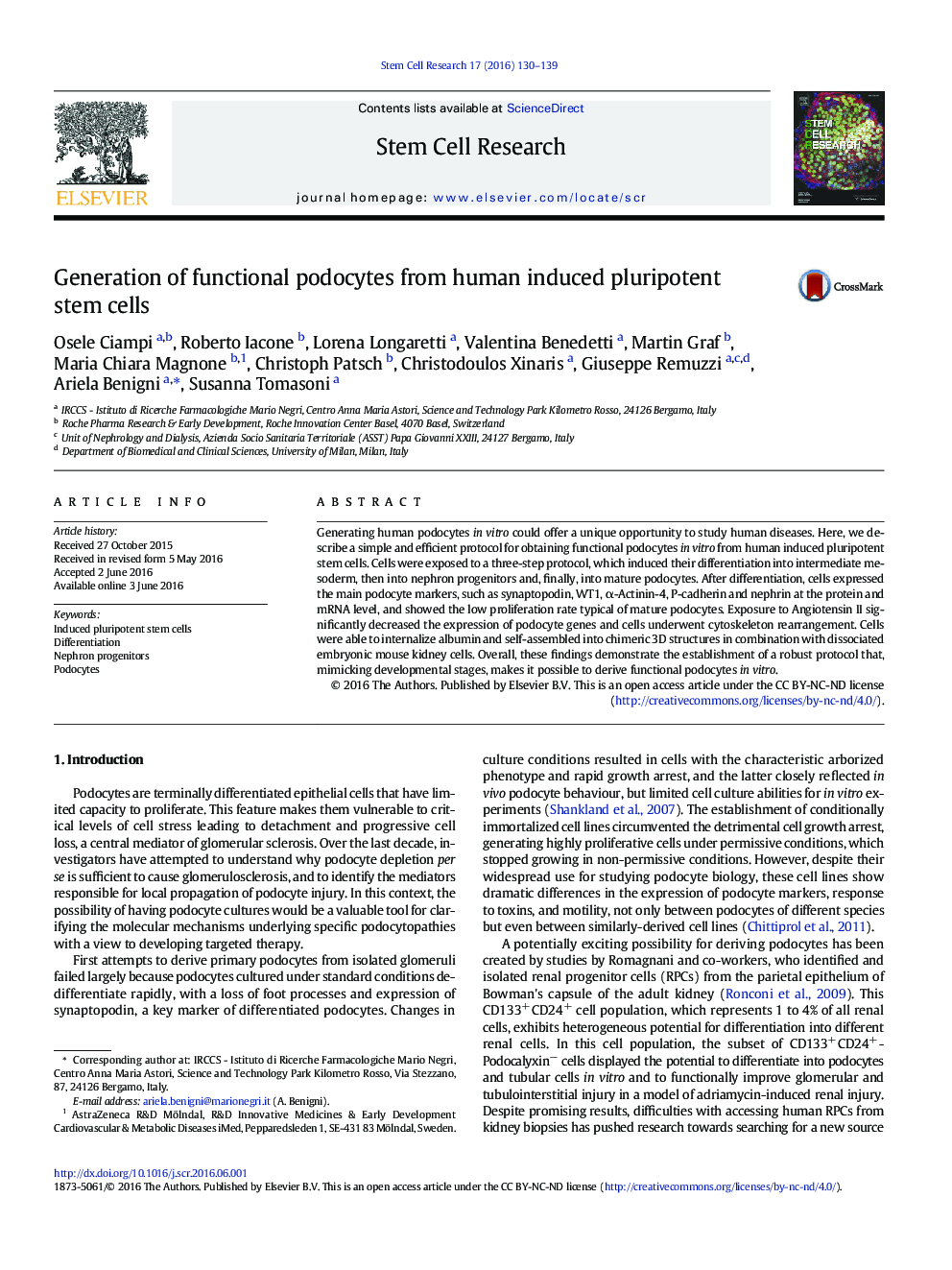| Article ID | Journal | Published Year | Pages | File Type |
|---|---|---|---|---|
| 2094107 | Stem Cell Research | 2016 | 10 Pages |
•Human iPSC differentiation into podocytes recapitulates kidney developmental stages.•The differentiation protocol is reproducible and highly efficient.•The generated podocytes reflect primary cell behaviour and are functional.
Generating human podocytes in vitro could offer a unique opportunity to study human diseases. Here, we describe a simple and efficient protocol for obtaining functional podocytes in vitro from human induced pluripotent stem cells. Cells were exposed to a three-step protocol, which induced their differentiation into intermediate mesoderm, then into nephron progenitors and, finally, into mature podocytes. After differentiation, cells expressed the main podocyte markers, such as synaptopodin, WT1, α-Actinin-4, P-cadherin and nephrin at the protein and mRNA level, and showed the low proliferation rate typical of mature podocytes. Exposure to Angiotensin II significantly decreased the expression of podocyte genes and cells underwent cytoskeleton rearrangement. Cells were able to internalize albumin and self-assembled into chimeric 3D structures in combination with dissociated embryonic mouse kidney cells. Overall, these findings demonstrate the establishment of a robust protocol that, mimicking developmental stages, makes it possible to derive functional podocytes in vitro.
